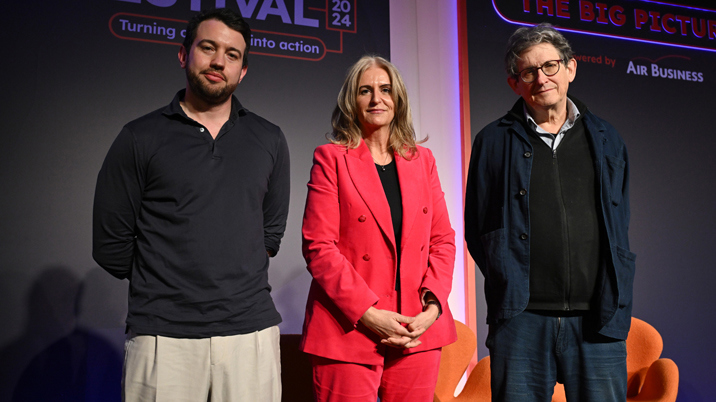
The PPA held its annual festival on Tuesday at The Brewery in London. The opening session saw Harmsworth Media’s Nina Wright in conversation with Prospect magazine editor Alan Rusbridger and Mill Media founder Joshi Herrmann about the future of media.
Against a backdrop, as they saw it, of a crisis in trust in the news media, with people not knowing what and who to believe and widespread churnalism and political partisanship on the part of much of the press, Alan and Joshi had a number of things they would like to see happen to help secure the future of publishing:
- Focus on quality not quantity: in parts of the regional press, journalists are expected to churn out multiple stories a day, many of them based on rehashing press releases. This is not quality journalism and readers can spot it a mile off. In a world where we’re competing against everything, we have to up our game. The focus should be on producing less but making it better.
- Less partisan reporting and a clearer distinction between news and opinion: sections of the national press are highly partisan, where newspapers adopt a position and mold their reporting to suit, irrespective of the facts. If people feel they are being fed a line, that there is a lack of credibility, then decline is inevitable. Truth and trust must be our currency.
- Increased efforts to engage with younger people. Without putting in the effort to engage with and understand younger readers, the pipeline of subscribers will eventually run dry. Young people have a good nose for what is trustworthy and where truth lies. If they pitch up on a news site and find “some old bloke doubting climate change”, they’re not going to stick around.
- Include ‘media literacy’ in the national curriculum, for ages six and up. There is so much noise and competition for people’s attention that children need to be educated so they can make informed choices in the digital world. Media literacy is an essential attribute of modern citizenship.
And, finally, no session at a publishing conference is complete without some thoughts on AI…
Firstly, publishers should definitely experiment with AI but, critically, must always be transparent about what they are doing.
Secondly, whenever significant new technology comes along, publishers face a choice. Do they invest in the new tech and use it to improve what they do? Or do they use it simply to cut costs and reduce headcount?
Publishers are at a fork in the road. As a general rule, investment and doing things better is the right path to choose.

You can catch James Evelegh’s regular column in the InPubWeekly newsletter, which you can register to receive here.












